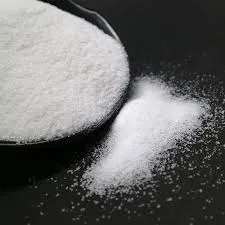Understanding Active Pharmaceutical Ingredients (APIs) in Modern Medicine
Active pharmaceutical ingredients (APIs) are the cornerstone of pharmaceutical formulations, acting as the biologically active component responsible for the therapeutic effect of medications. Understanding APIs is essential for various stakeholders in the healthcare field, including researchers, manufacturers, healthcare providers, and patients.
The Role of APIs in Pharmaceuticals
APIs are the active components in drugs that produce the intended response in the body. For instance, in a painkiller like aspirin, the API is acetylsalicylic acid, which works by inhibiting enzymes involved in pain and inflammation. Thus, the quality and efficacy of an API directly influence the clinical outcomes of a medication.
When manufacturing pharmaceuticals, companies must ensure that APIs are produced under stringent conditions and regulations. The production process is complex and requires vast amounts of research and development. This includes various phases such as synthesis, purification, formulation, and quality control.
Types of APIs
APIs can be broadly categorized into two types small molecules and biologics. Small molecules are low molecular weight compounds, generally synthetic or semi-synthetic, and are the most common type of API. They are used in a wide array of medications from antibiotics to antihypertensives.
In contrast, biologics are derived from living organisms and include proteins, monoclonal antibodies, and nucleic acids. These larger and often more complex molecules have gained significant attention for their ability to treat conditions that were previously difficult to manage, such as cancers and autoimmune disorders. The development of biologics has opened new avenues for innovative treatments, but it also comes with challenges related to manufacturing and regulatory approval.
Regulatory Standards and Quality Control
Given their critical role in healthcare, APIs are subject to strict regulatory oversight to ensure their safety, efficacy, and quality. Regulatory bodies like the U.S. Food and Drug Administration (FDA) and the European Medicines Agency (EMA) set rigorous standards for API manufacturing.
api active pharmaceutical ingredient example

The manufacturing facilities must adhere to Good Manufacturing Practices (GMP) to maintain quality and consistency. This includes practices surrounding staff training, hygiene, process validation, and environmental controls. Any deviation from these standards can lead to contaminated or ineffective medications, raising concerns for patient safety.
The Importance of API Supply Chains
The global nature of the pharmaceutical industry often leads to complex supply chains for APIs. Many APIs are produced in developing countries, where labor and production costs may be lower. While this can make medications more affordable, it also raises concerns about the oversight of manufacturing practices and the quality of the products being exported.
Recent events, such as the COVID-19 pandemic, have highlighted the vulnerabilities within these supply chains. Disruptions in production or transportation can lead to significant shortages of essential medicines. As such, there is an ongoing discussion about the importance of localizing API production and ensuring a robust supply chain to enhance drug security.
Future Directions
The future of APIs looks promising as advancements in technology and science continue to evolve. Areas such as personalized medicine and targeted therapies require APIs to be tailored to individual patients, necessitating innovations in drug development and production processes.
Moreover, the increasing focus on sustainability in pharmaceutical manufacturing may shape how APIs are produced in the future. Companies are exploring greener synthesis methods and the use of renewable resources, paving the way for more environmentally friendly practices.
Conclusion
Active pharmaceutical ingredients are fundamental to the efficacy of medications. Their complex production processes, stringent regulatory requirements, and global supply chain dynamics are crucial considerations for the future of healthcare. As we move towards more innovative and sustainable practices, the importance of understanding APIs will continue to grow, ultimately leading to better patient outcomes and advances in medical science.

